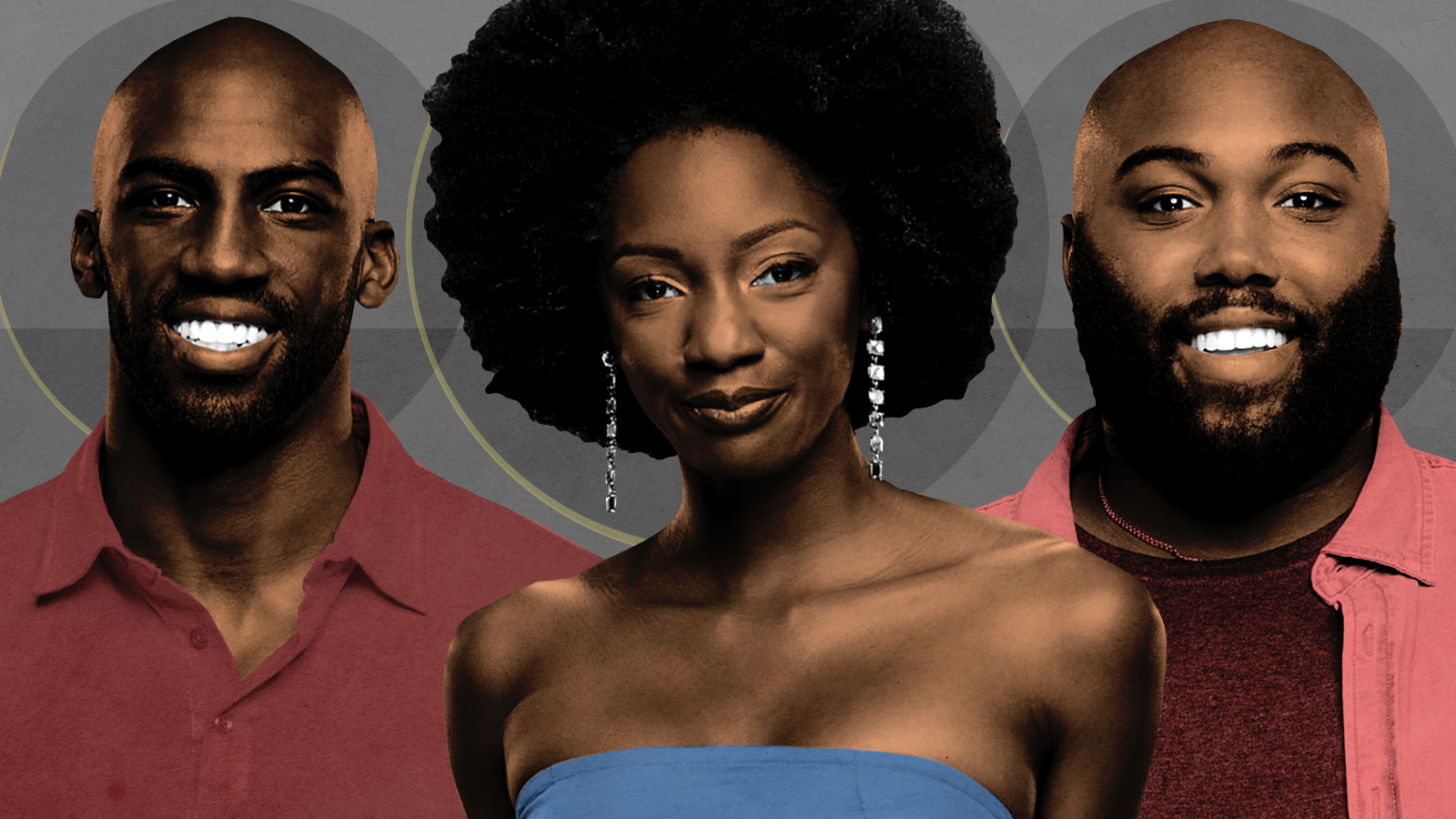Big Brother's historic Black victory shows the future of reality TV
The long-running show will crown its 1st Black champion. It should start a new era in reality TV.


A free daily email with the biggest news stories of the day – and the best features from TheWeek.com
You are now subscribed
Your newsletter sign-up was successful
Tonight's Big Brother finale will make reality TV history. For the first time in its 23 seasons, the hit CBS competition show will crown a Black winner chosen from three finalists: Azah Awasum, Derek Frazier, and Xavier Prather.
These contestants didn't reach this stage by chance. They made it to the last night largely because of a rock-solid, secret alliance the show's six African-American players formed at the season's start. That strategy — and its reception among viewers and other contestants alike — gives this Black victory on Big Brother a significance beyond the outcome of tonight's finale.
One of the first franchises of modern reality television, Big Brother's premise is that contestants, known as "HouseGuests," are locked into a home for several months and vote each other out of the competition week by week. Players form secret pacts in groups of two or three, but alliances often break under the weight of mutual suspicion the game nears its end.
The Week
Escape your echo chamber. Get the facts behind the news, plus analysis from multiple perspectives.

Sign up for The Week's Free Newsletters
From our morning news briefing to a weekly Good News Newsletter, get the best of The Week delivered directly to your inbox.
From our morning news briefing to a weekly Good News Newsletter, get the best of The Week delivered directly to your inbox.
The impressive feat of this summer's six-person Black alliance, which they named "the Cookout," was that it never broke. The Cookout stuck together, eliminating every other player to ensure one of their own would be chosen as Big Brother's first Black champion.
Predictably, that strategy generated charges of "reverse racism" from some viewers and conservative commentators. But as others have noted, the all-white alliances that dominated Big Brother's previous seasons received no comparable scrutiny, and the show has been plagued by a long history of ugly racism.
More importantly, none of this season's contestants have objected to the Cookout's gameplay. On the contrary, they praised it as smart strategy and recognized its higher purpose. Some HouseGuests, like Alyssa Lopez, a Latina contestant from South Florida, expressed pride in participating in a season with this historic result, even if it required their own elimination from the game.
Big Brother's showrunners deserve credit for this outcome, too. Not only did they cast the most racially-diverse season ever, but apparently they found a way to avoid picking HouseGuests like those in previous seasons who made vicious racism, misogyny, and homophobia a regular feature of the series. In fact, this may be the most important lesson of this season, not just for Big Brother but for reality TV more broadly: Casting people who aren't racist won't cut into the drama; it will refocus excitement around the gameplay itself.
A free daily email with the biggest news stories of the day – and the best features from TheWeek.com
That's a needed lesson, because racism has been a standard feature of reality television for two decades. Instead of showcasing diversity, popular competition-based shows too often cast only one or two persons of color to serve as an early target for white players' alliances. On programs like Survivor, The Bachelor/Bachelorette franchise, and Big Brother, which all run on elimination votes, the token person(s) of color is regularly among the first to go home. Between 2002 and 2016, for example, not one African-American competitor on The Bachelor or Bachelorette lasted past the fifth week. Nearly 60 percent were cut in the first two weeks.
Big Brother has a particularly troubling history on this front. For most of its run, the show's producers assembled an almost all-white cast, and most players of color were eliminated early in the game. In its previous 22 seasons, 19 of Big Brother's winners were white, and 14 of those were white men. (None of the three prior winners of color were Black.)
For Black HouseGuests who stayed in the game past those initial weeks, the experience often proved worse than an early exit, as they endured racist and bigoted assaults from white castmates.The 2019 season had a comparatively diverse case — though it still only counted five players of color among 16 competitors — but this made the franchise's race problems all the more apparent. Four of those five HouseGuests of color were voted off first. The remaining episodes devolved into one of show's most racist seasons.
Remarkably, though, it wasn't the disaster of 2019 that compelled CBS to overhaul Big Brother and the rest of its reality lineup. The network responded to Black Lives Matter protestswith an announcement in November of 2020 that the casts of all its unscripted shows would be at least 50 percent BIPOC (Black, Indigenous, and People of Color) by the 2021-2022 broadcast season.
That certainly shaped how this year's Big Brother played out. The show had never before featured six Black HouseGuests at once, and the support this season's players have shown for each other — as well as the show's unfolding Black win — ought to be a model for reality TV's handling of race and racism moving forward. Halting, perfunctory diversification efforts on other networks (like Bravo's addition of a few Black and Asian castmembers to its popular Real Housewives shows, which has mainly served to fuel racism plotlines) could use the positive role model.
No doubt, racial conflict is all too real in this nation, and that will show up on our reality TV. Yet this season of Big Brother and the new CBS casting policy together provide a useful roadmap for the future of representation on the airwaves. The victory of the Black contestants' alliance proves these shows don't have to magnify our nation's worst animosities at the expense of persons of color. Reality TV doesn't have to be a place where racism wins.
Neil J. Young is a historian and the author of We Gather Together: The Religious Right and the Problem of Interfaith Politics. He writes frequently on American politics, culture, and religion for publications including The New York Times, The Atlantic, the Los Angeles Times, HuffPost, Vox, and Politico. He co-hosts the history podcast Past Present.
-
 Political cartoons for February 15
Political cartoons for February 15Cartoons Sunday's political cartoons include political ventriloquism, Europe in the middle, and more
-
 The broken water companies failing England and Wales
The broken water companies failing England and WalesExplainer With rising bills, deteriorating river health and a lack of investment, regulators face an uphill battle to stabilise the industry
-
 A thrilling foodie city in northern Japan
A thrilling foodie city in northern JapanThe Week Recommends The food scene here is ‘unspoilt’ and ‘fun’
